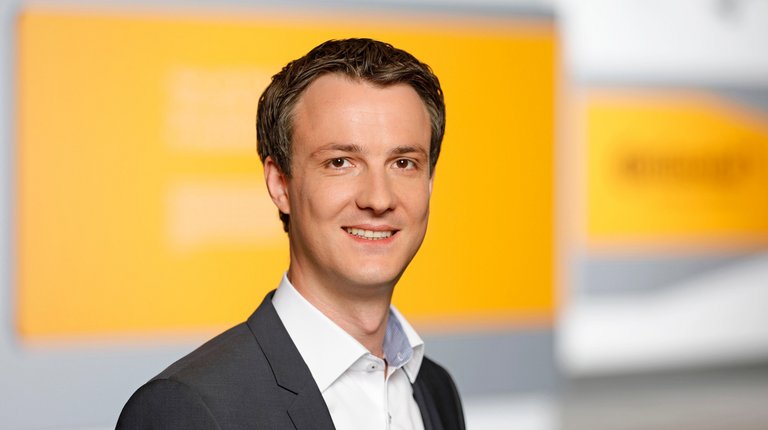Enhancing Competitiveness, Safeguarding Viability: Supervisory Board Approves Reorganization Plan
- Closure of the tire plant in Aachen at the end of 2021 and of the location for automotive electronics in Karben by the end of 2024, structural adjustments for future prospects in Regensburg, and termination of the joint venture with Osram
- As things stand, the structural program contains no further comparable structural measures requiring Supervisory Board approval for locations in Germany and abroad
- All central functions and business units worldwide to contribute to structural program
- Focus on profitable growth areas: assisted, automated, connected and zero-emission driving; integrated software-based system solutions including services for mobility customers; and the tire, industrial and end-customer businesses
- CEO Dr. Elmar Degenhart: “If we now head into our growth fields at full speed, we will have the opportunity to expand our workforce again in the next ten years significantly, like we are currently having to adjust it due to the structural transformation and weak economic environment.”
- Continental to provide details about the company’s strategy and its course for profitable growth at capital market days in December 2020
Hanover, September 30, 2020. In its meeting today, the Supervisory Board of Continental AG approved the structural measures at the German locations Aachen, Karben and Regensburg as well as the termination of the joint venture with Osram. As things stand, all of the comparable structural measures in the Transformation 2019–2029 program that require Supervisory Board approval for Continental’s locations in Germany and abroad have thus been decided. This does not include any possible disposal of specific business segments and operations included in the program that require approval. To protect company interests, Continental currently will not provide any further details.
Prof. Wolfgang Reitzle, chairman of the Supervisory Board, commented on the decision of the Supervisory Board: “The fundamental structural transformation of the automotive industry and the challenges presented by the economic and market environment have never been greater. They call for particular entrepreneurial courage and determination. With the resolutions approved today by the Supervisory Board, the foundation for the necessary transformation of Continental has been laid. We have thus substantially enhanced its competitiveness and increased its future viability. We are very aware that the process the automotive industry and we are going through now is indeed painful, and it will continue in the coming years. At the same time, it is opening up new and profitable growth opportunities in a world of mobility that is undergoing fundamental change. Continental is now well positioned to do this. I am firmly convinced that the company will emerge from this unprecedented transformation process all the stronger.”
Continental CEO Dr. Elmar Degenhart explained: “The current crisis is the largest, most severe one we have seen in the past 70 years. So the aim of our plan is now to prepare for our sustainable success and to ensure the future viability of our organization. As important as today’s resolutions are for our future, the consequences can be just as painful for the employees affected. We are deeply moved and saddened by their fears and concerns. We are doing everything in our power to limit the potentially harsh effects of our plans to what is only necessary. We are trying to mitigate these effects and make them socially acceptable and fair. At the same time, we are responsible for Continental’s future and thus for all employees in 59 countries and markets. That is why we have looked for sustainable solutions and carefully considered them. None of the decisions were easy for us. In total, about 30,000 jobs will be affected by these worldwide. This does not automatically mean that there will be 30,000 layoffs, which are always our very last resort. So we will now work together with the employee representatives to find solutions that support employees affected by the changes and enhance their employment prospects. An important key here is training and education,” Degenhart said.
He added: “If we now head into our growth fields at full speed, we will have the opportunity to again significantly expand our workforce in our future fields in the next ten years, like we are currently having to adjust it due to the structural transformation and weak economic environment. We are going to make the most of this opportunity.”
Continental’s key growth areas include functional solutions for assisted, automated, connected and zero-emission driving; integrated software-based system solutions such as services for mobility customers; as well as the tire, industrial and end-customer businesses. Continental is also gearing its Vitesco Technologies business area to achieve profitable growth with electrified drive solutions. Continental will provide details about the company’s strategy and profitable growth opportunities at its capital market days in December 2020.
Resolutions regarding Aachen, Karben, and Regensburg, as well as the joint venture with Osram
In its first resolution, the Supervisory Board approved the decision of the Executive Board to discontinue production in the tire plant in Aachen at the end of 2021. This affects about 1,800 of the 2,000 jobs in production, development and administration at the location. The reason for discontinuing tire production in Aachen is the capacity utilization which has been falling for several years in all of the company’s European tire plants in a market that will not grow in the short term.
For this reason, Continental is adjusting its excess capacity to market demand while at the same time lowering the cost pressure on all European plants. The aim is to sustainably ensure the competitiveness and thus the long-term success of the European tire production network. Further information can be found in a separate press release.
In its second resolution, the Supervisory Board approved the decision of the Executive Board to discontinue the production of automotive electronics in Karben by the end of 2023 and close the location by the end of 2024. About 900 jobs will be affected by the decision. The reasons behind closing the plant are the impact of digitalization of vehicle technology and the global sales crisis for passenger cars and light commercial vehicles together with the expected slow recovery of the market.
In a further resolution, the Supervisory Board approved the transformation of the Regensburg location, thus strengthening the clear commitment to its future. Development, innovation and production units are to be located in Regensburg in the future, as has been the case to date. It is also to serve as the base for the management team. For its future prospects, it is necessary to realign the location, which will affect about 2,100 jobs (total location workforce: about 7,600) in production, development and administration. These jobs are to be either modified, relocated or made redundant by 2024. Continental is thus responding to the change in requirements with the increase in electrification and digitalization, as well as to the historic crisis in the automotive industry. At the same time, the company feels the advancing digitalization and the associated proliferation of software in the car provides the potential to assign new tasks to the site and to develop and produce competitive solutions. For that reason, a plan in particular for the future of competitive production in Regensburg is being drafted together with the employee representatives. Key elements here are the training and retraining of employees, provision of greater work flexibility and increasing digitalization of the production process.
In a fourth resolution, the Supervisory Board approved the termination of the joint venture with Osram. Continental already announced the Executive Board resolution regarding this on September 23, 2020.
Structural program: All central functions and business units worldwide to contribute to structural program
As part of the structural program, all central functions and business units are contributing to the targeted savings and optimizations at all locations in Germany and abroad. In total, the planned changes affect more than 200 of the 595 locations worldwide.
Overall, Continental expects that the planned changes from the ongoing structural program will likely affect about 30,000 jobs directly worldwide. These will be modified, relocated, or made redundant. About 13,000 of those jobs are located in Germany.
The Transformation 2019-2029 program aims to strengthen the company’s long-term global competitiveness to ensure its viability in the future. The gross annual savings targeted with the program from 2023 onwards total more than €1 billion. Continental is thus responding to the structural transformation in the automotive industry and the sharp decrease in global vehicle production since 2018. In addition, there is the economic crisis resulting from the coronavirus pandemic. At the same time, Continental is thus aligning to a new growth model with increasing connected, safe and zero-emission mobility.

